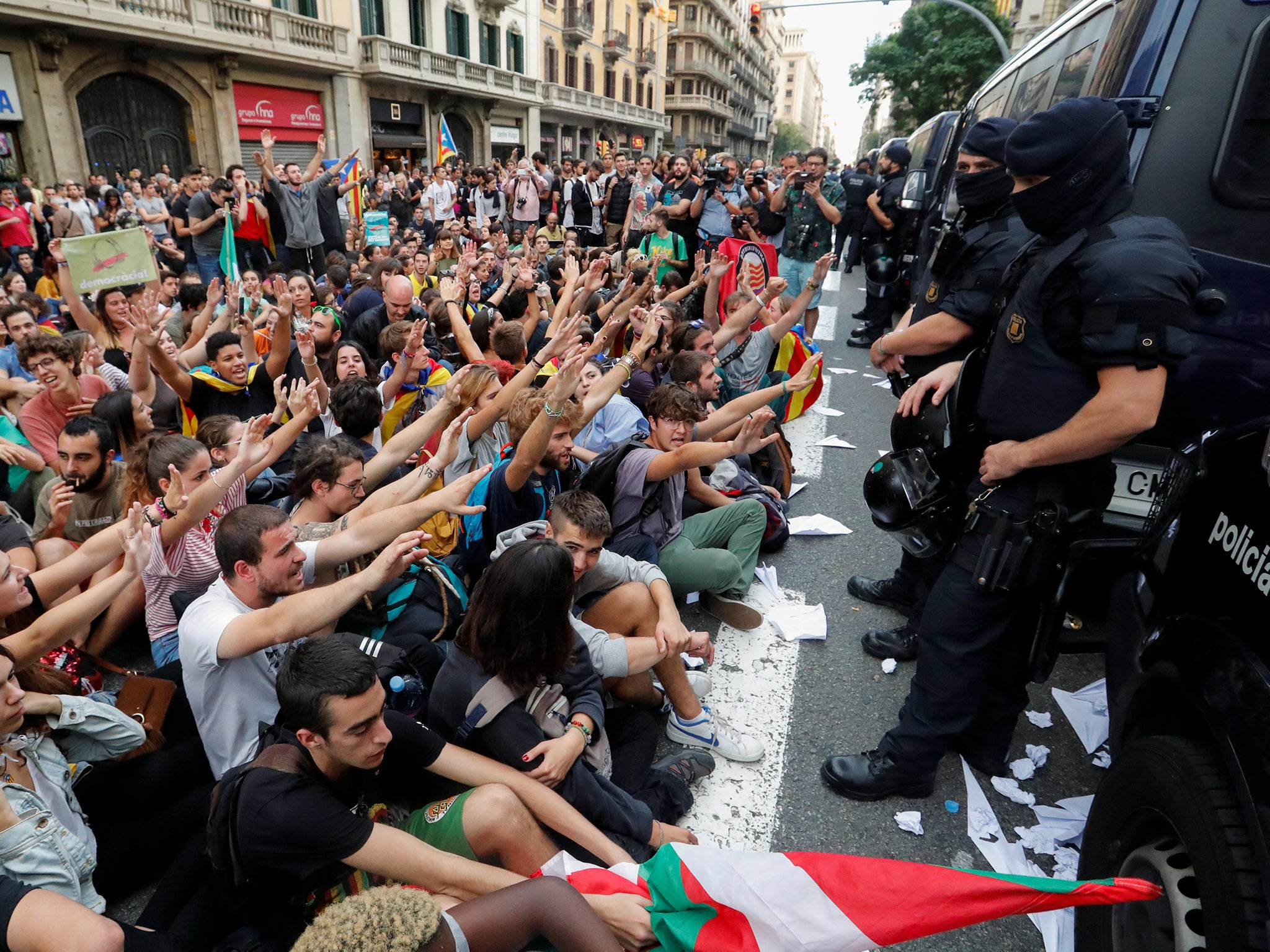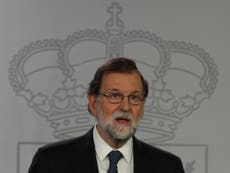‘Devo max’ could be the solution to the Spanish government’s Catalan question
Maximum devolution short of independence for Catalonia could be the constitutional lifeboat into which Rajoy could jump

Wounded by a sniper's bullet in his throat in the Spanish Civil War, George Orwell was repatriated to England 70 years ago. Orwell had volunteered to fight for the republican cause against Franco's fascists, and his book Homage to Catalonia charts his frustration with Catalan politics, where he felt the communists, Trotskyites and anarchists spent more time fighting each other than they did the fascists.
Now Barcelona is again in turmoil as the Catalan independence movement and nationalist campaigners clash. Last week's referendum on Catalan independence, on the face of it, showed a wide margin in favour of independence for the richest region in Spain. But Mariano Rajoy, the centre-right Prime Minister of Spain, has used all the powers at his disposal – including some violent reprisals last week by the national police – to defend the constitutional integrity of the Spanish nation.
Even King Felipe has supported the unity of Spain, attacking the Catalan separatists and questioning the legality of their actions. If, as seems likely, the Catalan authorities declare independence the Spanish government is set to reject it. It is reassuring, if perhaps surprising, that the level of violence has been relatively low, but that may not remain the case.
What, if anything, can Rajoy do to avert an ever-deepening schism? Surprising though it may seem, his best hope might be to study what David Cameron did when he faced a similar situation. For whilst Cameron's track record on referendums that would alter the constitutional position of the UK may be a mixed one (played three – voting reform, Scotland and the EU – won two, lost one) the way in which he played the Scottish referendum may offer Senor Rajoy his best way out of the constitutional impasse in which finds himself.
The Scottish National Party led by Alex Salmond won an overall majority in the Holyrood parliamentary elections in 2011, campaigning on a promise to hold a referendum on Scottish independence. In response David Cameron set out a simple mantra: if there were to be a referendum, it should, he said, be "legal, fair and decisive".
It needed to be legal because, at the time, constitutional affairs – including the right to hold a referendum on independence – were "reserved" to the Westminster Parliament. The agreement between the two governments explicitly allowed for a Scottish independence referendum to be held and for those reserved powers to be extended temporarily to the Scottish government for the purpose.
Any referendum on independence for Scotland had to be seen to be fair. To do that Cameron ensured that the Edinburgh Agreement had the full support of both the UK and the Scottish governments and parliaments. And the referendum was to be overseen by the independent UK Electoral Commission. That was written into the Edinburgh Agreement signed jointly by David Cameron and Alex Salmond on 15 October 2012.
Finally, the UK government insisted that the referendum should be "decisive". In the end the two governments agreed that this would be delivered via a binary "Yes"/"No" vote on Scottish independence. The SNP had originally wanted a third option of so-called "devo max" (maximum devolution short of independence). In the end the Scottish people voted on 18 September 2014 by a margin of 55 to 45 per cent to remain a part of the United Kingdom.
Does this model offer a way out for the Spanish? We think it does. Firstly, Senor Rajoy's government could tone down its rhetoric and sabre-rattling and say that it is willing to negotiate with the Catalan authorities for a further referendum which would have a solid basis in Spanish law. A question on extending Catalan devolution – within the framework of the Spanish constitution and nation – would have a strong chance of being passed.
“Devo max”, for example, was supported by over 80 per cent of the Scottish people according to opinion polls – although that option never made the ballot paper. The situation in Catalonia requires that it should appear on the ballot there. Indeed things have probably moved on so far that unless he does this Rajoy could risk losing a further referendum in Catalonia. A form of "devo max" for Catalonia could be the constitutional lifeboat into which Rajoy could jump.
For while there is no imminent threat to the Spanish state or the possibility of a civil war, as there was in Orwell's day, the risk of further destabilisation or even of the type of violence seen in the Basque separatist campaign cannot be discounted. It would be a wise and generous gesture if Rajoy now were to reach out to the Catalan people and offer a compromise on the Scottish model, rather than to dig his heels in further. A phone call to David Cameron might be a good starting point.
Alun Evans is Chief Executive of the British Academy and was Head of the UK Government's Scotland Office at the time of the 2014 Scottish Referendum. Gerard Hetherington is a member of the British Academy's Audit Committee. Both are former senior civil servants.


Join our commenting forum
Join thought-provoking conversations, follow other Independent readers and see their replies